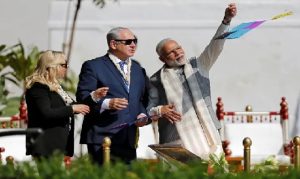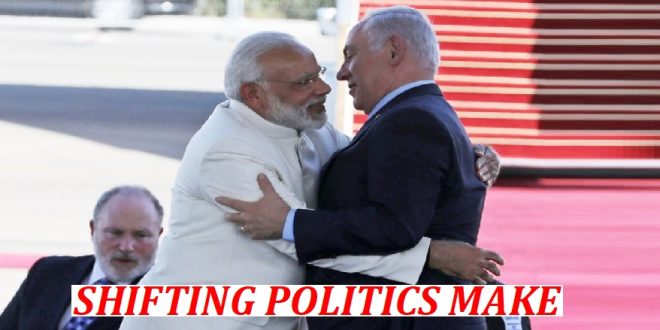28-10-2023
Bureau Report + Agencies
NEW DELHI: On October 7, within hours of the armed group Hamas launching a surprise attack on Israel, social media platforms were rife with support for Israel and also fake news.
What stood out in the clamor was the fact that a fair amount of it was produced and distributed by accounts from India.
 In the days after Israel declared war on Hamas, a blue-tick-verified handle posted a video on the social media platform X of a Pakistani parliamentarian threatening to obliterate Israel with an “atom bomb” if it did not end its atrocities against Muslims. That video received more than 840,000 views but it was from 2021 and is not related to the current war.
In the days after Israel declared war on Hamas, a blue-tick-verified handle posted a video on the social media platform X of a Pakistani parliamentarian threatening to obliterate Israel with an “atom bomb” if it did not end its atrocities against Muslims. That video received more than 840,000 views but it was from 2021 and is not related to the current war.
Similarly, Suresh Chavhanke, Editor-in-Chief of Sudarshan News, a right-wing channel, shared a clip on X of an Israeli representative tearing up a 20-page United Nations report documenting human rights violations. That too was from 2021.
Experts say the Israel-Hamas war has given a massive reach to social media accounts in India both large and small that have managed to ride a wave of anti-Muslim and pro-Israel fervor.
Apoorvanand, a Delhi University professor who goes by one name, perceives a link between current “anti-Muslim sentiment” and the rise of Hindu nationalist ideologies like Hindutva, particularly under the government of Prime Minister Narendra Modi.
Hindutva supporters, he said, “hold Muslims across countries responsible for all the ills and everything bad. They’ve started looking at Israel as an ideal, as a model to be followed because Israel does what it wants to do to Muslims”.
 A “generational shift” has taken place in India, said Nicolas Blarel, an associate professor of international relations at Leiden University in the Netherlands.
A “generational shift” has taken place in India, said Nicolas Blarel, an associate professor of international relations at Leiden University in the Netherlands.
Over the last decade, Blarel has observed that the country has grown more fascinated with Israel, including how it defends itself against attacks from its neighbors.
That situation has particular resonance in India, according to Blarel. In addition to border incursions from China in the east, India has also been subject to attacks on its western flank by what it says are state-supported armed groups in Pakistan. The two nuclear-armed nations have been locked in an ongoing conflict for control of the disputed territory of Kashmir.
Those tense international relations have, in part, led Modi’s Bharatiya Janata Party (BJP) to seek warmer relations with Israel.
“Terrorism is the thing that’s brought the BJP closer to Israel over the last few years how to better deal with counterterrorism,” said Blarel.
As a result, India’s political sphere has transformed from “an exclusive pro-Palestine ecosystem to the complete opposite and to one that is completely empathetic with (the) Israeli position” today, he explained.
 Pressmediaofindia
Pressmediaofindia




